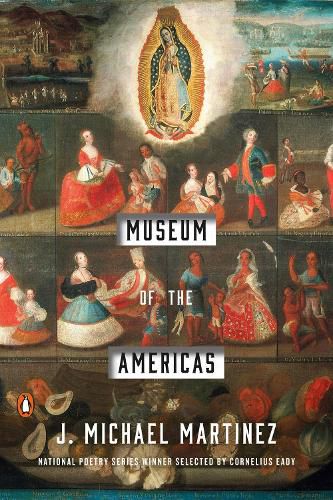Readings Newsletter
Become a Readings Member to make your shopping experience even easier.
Sign in or sign up for free!
You’re not far away from qualifying for FREE standard shipping within Australia
You’ve qualified for FREE standard shipping within Australia
The cart is loading…






The poems in J. Michael Martinez’s third collection of poetry circle around how the perceived body comes to be allegorically coded with the transhistorical consequences of an imperial sociopolitical narrative. Engaging eighteenth-century Mexican casta paintings, the morbid lynching postcards of William Horne, the Treaty of Guadalupe Hidalgo, and Martinez’s own family lineage, Museum of the Americas traces an aesthetic out of racialized scenes of corporeal excess.
Hybrid in form, Museum of the Americas voices itself in theory, poetry, and creative nonfiction. Throughout, Martinez questions how knowledge of the body is organized through an observer’s visual perception of that body. For Martinez, the corporeal always serves as a repository of the human situation, a nexus of culture. His work revives and repurposes the persecuted ethnic body from the biopolitical appropriations that render it a disposable aesthetic object.
$9.00 standard shipping within Australia
FREE standard shipping within Australia for orders over $100.00
Express & International shipping calculated at checkout
The poems in J. Michael Martinez’s third collection of poetry circle around how the perceived body comes to be allegorically coded with the transhistorical consequences of an imperial sociopolitical narrative. Engaging eighteenth-century Mexican casta paintings, the morbid lynching postcards of William Horne, the Treaty of Guadalupe Hidalgo, and Martinez’s own family lineage, Museum of the Americas traces an aesthetic out of racialized scenes of corporeal excess.
Hybrid in form, Museum of the Americas voices itself in theory, poetry, and creative nonfiction. Throughout, Martinez questions how knowledge of the body is organized through an observer’s visual perception of that body. For Martinez, the corporeal always serves as a repository of the human situation, a nexus of culture. His work revives and repurposes the persecuted ethnic body from the biopolitical appropriations that render it a disposable aesthetic object.